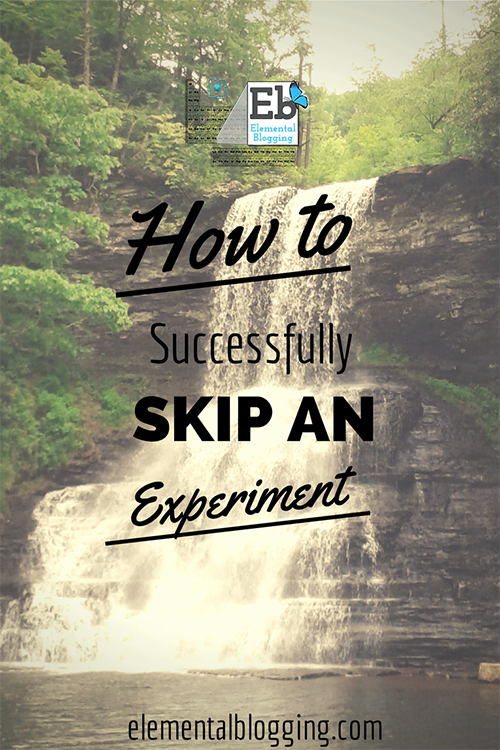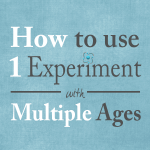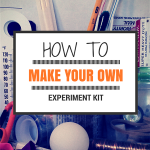 So, you are staring at this week’s experiment and you realize that you don’t have the materials you need.
So, you are staring at this week’s experiment and you realize that you don’t have the materials you need.
Your week is jam-packed. You can’t make it to the store. You have no substitute materials.
You can’t swap out the experiment because you don’t have the materials for the only other one that will work.
So what do you do?
Do you toss the book aside and resign to the fact that you will have to skip the experiment for this week? Do you accept the fact that your students just won’t learn about that right now?
Or is it possible for you to skip an experiment and still have your students learn something?
I have shared in the past tips for helping you complete your experiments, but let’s face it sometimes life gets in the way. Sometimes, these is just no way to work around the reason you can’t do a given experiment.
Today in the Homeschool Science Corner, I’m going to share with you how to skip and experiment and still have a successful learning experience.
How to skip an experiment
I am going to assume that we are speaking about skipping experiments with students who are fifth grade or higher.
If you students are younger than that, you are more likely doing scientific demonstrations. It is ok if you skip a few of those here and there because the students will most likely study the information again in later years. In fact, they may actually repeat some of those early demonstrations at a deeper level. (Note – Please don’t take the above as a license to skip every one of the planned scientific demonstrations because hands-on is one of the best ways to learn science, especially in the early years. I’m simply saying when your kids are young, don’t beat yourself up about it. Just start fresh the following week.)
So, now that we understand where I am coming from, let’s get to the nitty-gritty! Here are the steps you should follow when skipping an experiment.
Step 1. Read the introduction
The first step to learning from a skipped experiment is to read the introduction. This sets the stage for what the students should be discovering in the experiment. It gives them the background knowledge they will need, so it is an important part to cover.
Step 2. Formulate a hypothesis
Remember that a hypothesis is an educated guess of the outcome. The students are still capable of formulating their hypotheses even if they don’t complete the actual experiment.
Step 3. Read through the directions
Reading through the directions will give the students a picture of how the experiment would have been set up. It is important for them to have this picture in their mind as you move onto the next step.
Step 4. Read through the expected results
When you share the expected results with your students, they will have an idea of what should have happened in the experiment. They can take their mental picture from the previous step and let it play out.
Step 5. Discuss the explanation
The purpose of the explanation for the experiment is to ground the results in real science and to tie them into what the students are learning. By sharing the explanation, you are making sure that the students have grasped the concepts they need to from the experiment.
The Final Product
So, to successfully skip an experiment and still have your students learn, you need to mentally run through the experiment.
Reading the introduction, directions, expected results, and explanation will all serve to paint a mental picture of the experiment. And this mental picture will teach your students what they need to know.
Of course, it is always best to have your students experience the real thing, but for those days when you just can’t, you can use the above steps to successfully skip an experiment.









My mom wasn’t a fan of experiments. She would buy us books about them, but not the materials to do them ourselves. This was the only way I learned anything about them!
Now, when I try to do some with my kids, I get frustrated so fast it scares me. The “expected results” work so nicely on paper, but things are often easy to mess up.
At least I know you can grow up to be decent at science even when you don’t do all the experiments in person!
Oh my, Cheri! Good for you for trying experiments with your kids!